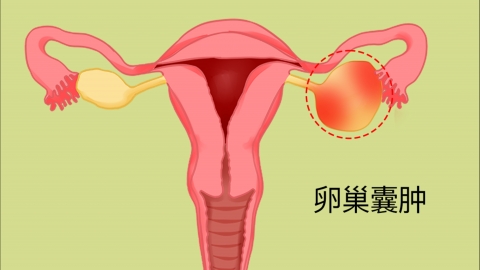What are the symptoms of ovarian cysts?
Generally, the main symptoms of ovarian cysts include dull pain in the lower abdomen, abdominal masses, menstrual irregularities, bloating, and frequent urination. If discomfort symptoms occur, it is recommended to seek timely diagnosis and treatment at a regular hospital. Detailed analysis is as follows:
1. Dull Pain in the Lower Abdomen
As a cyst grows within the ovary, it may compress surrounding tissues or stretch the ovarian ligaments, causing dull pain in the lower abdomen. The pain is usually intermittent and aching, possibly worsening after physical exertion or strenuous activity. Some patients may only feel slight pain when pressing on the lower abdomen, which can temporarily improve with rest.

2. Abdominal Mass
As the cyst increases in size, it may form a palpable mass in the abdomen. When lying flat, patients may feel a firm, smooth-surfaced mass upon pressing the lower abdomen. The mass is often unilateral, mobile, and typically not painful upon palpation. In some cases, a larger mass may cause abdominal distension.
3. Menstrual Irregularities
Cysts may affect the normal endocrine function of the ovary, leading to hormonal imbalances and menstrual irregularities. Patients may experience early or delayed menstrual cycles, increased or decreased menstrual flow, prolonged menstruation, or light vaginal bleeding outside the menstrual period. Severe cases may impact fertility.
4. Bloating
When the cyst is large, it may occupy abdominal space and compress the intestines, affecting intestinal motility and causing bloating. Patients often feel abdominal fullness and discomfort, with more pronounced symptoms after eating. Some patients may also experience reduced appetite, and severe cases may involve nausea and indigestion.
5. Frequent Urination
A large cyst may compress the bladder, reducing its capacity and increasing bladder sensitivity, leading to frequent urination. Patients may urinate more frequently with smaller volumes each time, constantly feel the urge to urinate, and may wake frequently at night to urinate, affecting sleep quality. However, symptoms such as painful urination or urgency typically associated with urinary tract infections generally do not occur.
In daily life, it is important to develop regular作息 habits, avoid staying up late and excessive fatigue, and minimize impacts on the endocrine system. Diet-wise, reduce intake of high-salt and high-fat foods, consume more fresh vegetables and fruits, and maintain a balanced diet.






